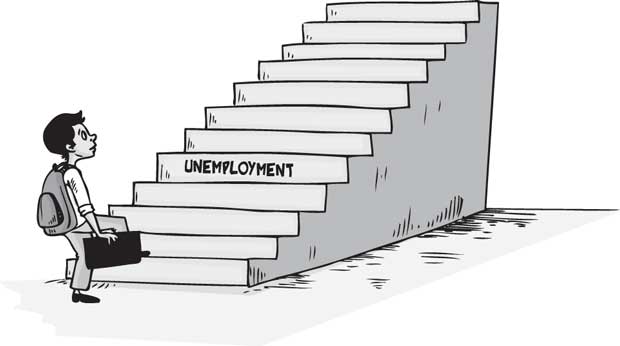15 Jul 2017 - {{hitsCtrl.values.hits}}

With modern technology’s marvels giving the people, mainly the youth, the privilege of having a virtual university in their pockets or hand bags, the United Nations World Youth Skills Day today has vital significance for the youth and the world.
This year’s theme is Skills for All. In a statement, the UN says young people are almost three times more likely to be unemployed than adults and regularly exposed to lower quality of jobs, greater labour market inequalities and longer and more insecure school-to-work transitions.
In addition, young women are more likely to be underemployed and under-paid. Therefore they undertake part-time jobs or work under temporary contracts.
That is why education and training are key determinants of success in the labour market. Unfortunately, existing systems are failing to address the learning needs of many young people and surveys of learning outcomes and skills show that a large number of youth have low levels of achievement in basic literacy and numeracy, the UN says.
Skills and jobs for youth feature prominently in the 2030 Agenda for Sustainable Development, and SDG target 4.4 calls for a substantial increase in the number of youth and adults, who have relevant skills, the UN adds.
According to a recent International Labour Organization (ILO) publication, 73.4 million young people were estimated to be unemployed in 2015 (13.1% youth unemployment rate), and this figure is expected to increase in most regions this year.
According to the World Skills web site, all youth should have the opportunity to discover and develop their talents. Through skills individuals, communities, and countries can create a more prosperous future. It says that skills should be available to everyone and calls on youth to share with it a skills story that demonstrates how skills have launched careers, and how they build character, confidence and success.
In a statement to mark the first World Youth Skills Day, the UN climate change newsroom says the youth skills should be developed to empower them for action in areas relating to climate change and development.
The World Youth Skills Day celebration coincides with a crucial year in which the world will set the agenda for decades to come - by concluding a new universal climate agreement in December in Paris and with the adoption of new Sustainable Development Goals in September in New York. Fittingly, this year’s theme is “Youth skills for work and life in the post-2015 agenda”.
The UN says, climate change is both an enormous challenge and an incredible opportunity for young people. If greenhouse gas emissions continue to rise and climate change impacts continue to worsen, future generations will be forced to shoulder the biggest share of the burden.
Empowering major groups like young people to take climate action is one of the mandates agreed by governments meeting under the umbrella of the United Nations Framework Convention on Climate Change. Action for Climate Empowerment is the focus of so-called “Article 6” of the Convention that seeks to reduce the impacts of climate change by enabling society to be a part of the solution.
United Nations Framework Convention on Climate Change (UNFCCC) Executive Secretary Christiana Figueres says:
“Securing a promising future for you and for generations to come will require action by every individual - to move the world as a whole towards the future we want. We all have our own path to walk and each of us, each of you, has the power to be an agent of change. So choose the climate change solution that is right for you in your community, in your situation.”
In Sri Lanka, the Government has set up several vocational training centres in Colombo and the other districts to train our youth in modern technology and other skills.
The battle against climate change and world poverty alleviation need to be among the focal points of the vocational training, because it is the youth who will benefit most if effective measures are taken against climate change and for structural changes to bring about a more equitable distribution of the world’s wealth and resources.
29 Oct 2024 29 Oct 2024
29 Oct 2024 29 Oct 2024
29 Oct 2024 29 Oct 2024
29 Oct 2024 29 Oct 2024
29 Oct 2024 29 Oct 2024